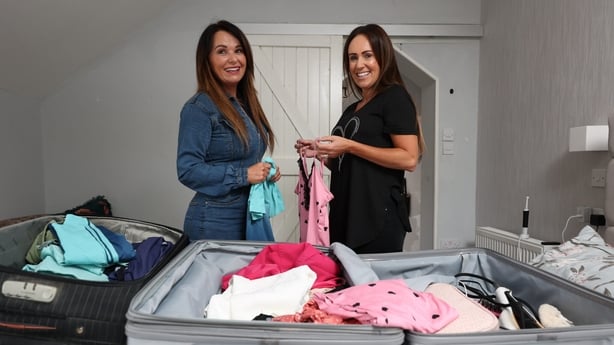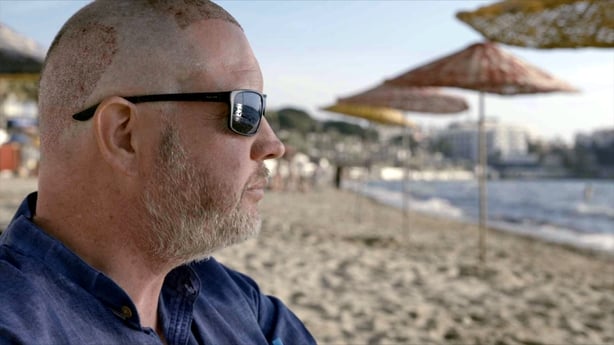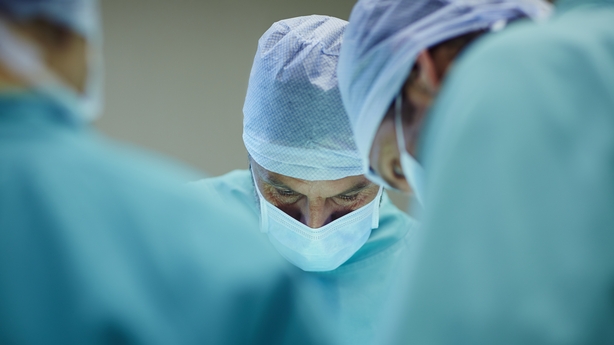Sun, Sea and Scalpels follows the experiences and pitfalls of some of the 10s of thousands of Irish people travelling abroad for cosmetic surgery each year.
Ahead of the first of the two-part show airing tonight, Wednesday October 11, at 9:35pm on RTÉ One, we spoke with Professor Helen Henegan to discuss the many issues arising from 'medical tourism'.
As well as working as a Bariatric Surgeon with HSE, and as Chair of Surgery in St. Vincent's Hospital, Professor Henegan says she spends much of her week working in weight management clinics for pre and post-op care.
"Most of my work is managing people with severe obesity and delivering surgical treatment to them," she explains.
"About a quarter of my week is in clinics, where we see people for quite a lengthy period of time before an operation to council them, educate them and consent them."

As well as preparing her patients for surgery, Professor Henegan uses the clinics for follow ups, many of which may last a lifetime.
The issue with Irish people going abroad for weight-loss procedures, she says, is that these essential pieces of care are simply not in place, and patients will inevitably need to return home for additional care - which will likely contribute to the wait list that saw them going abroad in the first place.
"It's a catch-22," she says. "We have an added burden of work that is unpredictable and unscheduled. We don't set aside time for it but people come in through the emergency department."
"Their needs are often much greater than the patients we have prepared for surgery and looked after pretty well," she continues. "If they need to be in hospital, they're generally very sick and are sometimes in for months. In that time, they're taking up one of our bariatric beds."

Physically, there are two major issues the surgeon is seeing in patients coming home from surgery abroad.
Firstly, many people are getting surgeries that they simply wouldn't be eligible for in Ireland:
"What I mean, really, is that people aren't heavy enough. That person might lose a bit of weight but they won't be any healthier. There's no benefit, and you can't offset the risk against it. It's just a risk that the patient is taking."
Secondly, patients aren't being informed or educated on the serious procedures that the are undertaking.
"We would see a large volume of people coming in with vomiting and pain that is actually quite normal for the time period they're at post-op," she explains. "But you have to assume there's a problem unless proven otherwise, so they undergo a lot of investigation to prove that there's not a mechanical issue."
"They don't know how slow they have to eat or how little they have to eat," she adds. "Some assume they can behave the same way and the surgery acts separately.
"Having to do that education afterwards, I find that the most frustrating actually. We have to put in a lot of the work that should have been done by these other providers."

In Ireland, the is a lengthy pre-op selection process that checks on potential patients' mental health and ensures that they are capable of adjusting to the new eating habits they will have to undertake.
Although more time-consuming, Henegan says the process is essential as obesity is often "tied up with mental health problems".
"It's really important to have psychological support to address that before an operation and to have that same person afterwards," she explains. "It can be a really destabalising operation for someone with pre-existing mental health problems. We see people in awful trouble when they come back."
With names like "mummy-makeover" and "tummy tuck", Henegan believes that many serious procedures are being perceived as quick fixes that require little thought.
"People don't allow for complications that can happen - even when it's done really well. Any time a knife is picked up, there is risk of complication. Same with any injectables as well; there is a recognised complication that can happen with the best of the best."

Despite the many risk factors involved, Henegan says she understands that being on a years-long waiting list in Ireland can be incredibly burdensome to people, but urges everyone to do their research before going under abroad.
"Ultimately, people are going because they will benefit from weight loss and they don't want to wait five years to get into our programme," she says. "I can't stop that, but I would say they have to do their homework and know that they need to be provided with a multi-disciplinary assessment and follow up."
While some UK clinics will follow up virtually, many foreign clinics will offer no such service and will simply direct patients to contact their local healthcare providers if issues arrive.
"They need to be prepared with what they plan to do - even financially," she insists. "We provide public care but there is an onus on them if they need to back and do counselling or need certain follow up care. They need to be prepared and have a plan for if things go wrong."
To find out more about medical tourism, tune into Sun, Sea and Scalpels tonight, Wednesday 11, at 9:35pm on RTÉ One.
If you have been affected by issues raised in this story, please visit: www.rte.ie/helplines.


